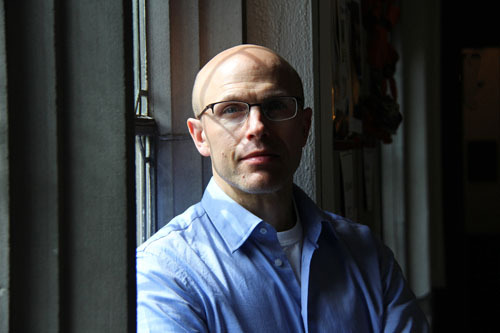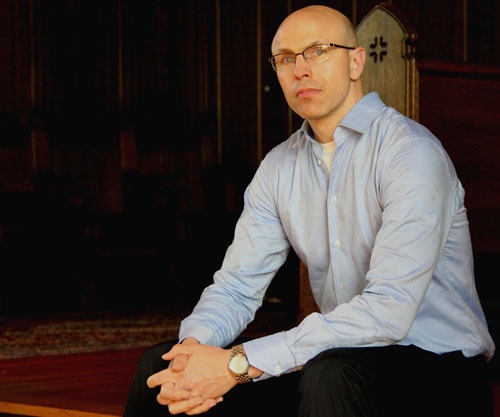
Paul Massari, Associate Director for Development Communications
“It will take a long time to recover from my mom’s death. In the meantime, the love and support of the HDS community is one of the things that make the grieving process bearable.”
Unexpected Loss
My job is to make the case for Harvard Divinity School. I try to show donors and others the ways that our faculty and students bring wholeness to a fractured world. But I don’t know that I really understood the importance of what we do here until recently, when my mother decided to end her life.
The loss of a parent—particularly one’s only parent—is always difficult, more so when the circumstances of their death are complicated and troubling. My mom gave me no warning, although some of the things she said and did in recent months have taken on new meaning now. There was no goodbye, no will, and no directions for what to do after she died. The fact that she ended her life on Mother’s Day was particularly painful.
Receiving Support
Friends want to help. They send cards and notes, express sympathy, say “I’m sorry for your loss,” but it’s hard for them to understand the anger, the self-recrimination, and the guilt that you feel when someone you love ends their life this way. I found myself trying to make my friends feel appreciated and acknowledged for their condolences when I most needed someone to lean on. It was exhausting.
Kerry Maloney, the director of HDS’s Office of Religious and
Spiritual Life, understood. I don’t know how she found out about my mom’s death,
but she sent me an email a couple of days later. The subject line was simply
“You.”
“Do not write back,” she wrote. “These are tender and deep days for you. I just wanted you to know that I am holding you and your family in my prayers. When you return, I’ll be glad to listen to stories about your mom and her passing, should you wish to speak.” I did write back to thank her, but it was an enormous relief to feel like I really didn’t have to, that someone “got it” and that they didn’t expect anything from me at a time when I had nothing to give.
I also reached out to Professor Frank Clooney, a Jesuit
priest. My mother was an atheist, but our family was Catholic, so I’ve always
felt a connection to Frank. When we spoke, he didn’t try to fix me or explain
my mom’s behavior. He expressed sympathy and sat with me in the struggle to
deal with the reality that God’s love—though ever present—sometimes doesn’t
reach people.
Searching for Meaning
The next day, when I was feeling particularly under water, I posted a question to Facebook: “How do you make spiritual sense of self-destructive behavior? Why does the experience of God’s love—of transcendence—reach some people and not others?” I heard back from a group of the School’s alumni I’d made friends with in recent years. Like Frank, they didn’t give me platitudes or simple answers. They were honest about the mystery of my mother’s death and offered wisdom and perspective from nearly all of the world’s major religions.

My friend the Episcopal priest was plainspoken: “…why this
happens is beyond my knowledge. But what I also believe…is that God is holding
your mother so dearly now, that all the pain she was feeling is melting away
and she is reveling in fullness of health and joy.”
Closest to my own faith, my Hindu friend reminded me that “the spiritual Self has the ability to transcend the physical body and, when the body perishes it knows how to escape from it.”
My Jewish friend, a rabbi shared that “The main thing Judaism teaches about mourning is that it is a process that takes time. The mourner is called just to be with the process, and the tradition approaches us with kindness.”
A monk from Sri Lanka offered words attributed to the Buddha:
Such indeed is how the steadfast
act:
They are not attached to life.
Having drawn out craving at its root
Godhika has attained final Nibbaana.
Only at HDS…
Loving Community
I was able to start this healing process thanks to coworkers who, in between writing condolence notes and sending sympathy cards, took on my responsibilities during the extended bereavement leave that the School generously granted me.
I don’t know what I would have done without this support. If my mother had had access—and been open to—these kinds of spiritual resources, I believe she would have suffered less, been happy more, and lived longer.
It will take a long time to recover from my mom’s death. In the meantime, the love and support of the HDS community is one of the things that make the grieving process bearable.
